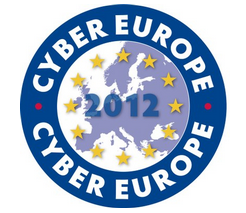Europe Prepares for Cyber Warfare with Cross-Border Drill
Today, 300 IT security professional across 25 countries in Europe will be working through a cyber-security test.

Cyber Europe 2012 is a Europe-wide simulated cyber war which is designed to test out Europe's response and cross-border cooperation in the event of a large attack against the continent.
This is the second instalment of the exercise, the first one having taken place in 2010. In just two years, the event has grown from 70 participants to 300, and now includes participants from the private sector in order to test out cooperation between the public and the private sectors.
Cyber Europe is organised by the European Network and Information Security Agency (ENISA) and aims to consolidate the European cyber-security efforts and mechanisms already in place.
A total of 25 countries are represented, and a further four have tacit observers attending the exercise. There will be 1,000 incidents triggered throughout the drill to put the participants to the test and see how they react.
All of the incidents will result in a large scale DDoS (Distributed Denial of Service) attack on multiple online services across European countries.
The private and public sector participants will cooperate on a national level, while cross-border actions will take place between public sector participants from the various countries.
Back in 2010, after the first event, the ENISA found that there was a need for more exercises of this type, with more collaboration between countries and greater involvement from the private sector.
When asked whether the exercise will actually bring anything positive, Sean Sullivan, security adviser at F-Secure, commented: "Well, it won't hurt at least. Lofty goals, not so sure that UK businesses and government will take action, but I'm sure some very good university research will be born from the funding."
Paul Lawrence, VP of international operations at Coreco Network Security, sees the exercise as indicative of the ENISA's approach to hacking threats.
"The Cyber Europe 2012 exercise today is another step forward for governments across Europe in learning to work together to protect critical IT systems from cyber-attacks.
"What is interesting about the ENISA's 2012 attack scenario is that it will combine several technically realistic threats into one simultaneously escalating Distributed Denial of Service (DDoS) attack. This goes to show that DDoS attacks have gone from a minor annoyance carried out by bedroom hackers, to a serious security threat that ENISA feels needs to be addressed.
"Every organisation that operates online is at risk from a DDoS attack, and far too many still rely on the 'it won't happen to me mentality'. If they haven't already, organisations need to start re-thinking how they can protect themselves from DDoS attacks, which have become a regular staple in many hackers' toolkits."
This month is also Cyber Security Month, with various activities and events happening throughout the month of October in European countries. These will be raising awareness on cyber security issues.
The Executive Director of ENISA, Professor Udo Helmbrecht, explained the campaign was aimed at making people smarter about the internet. "This campaign increases citizen's confidence in the security of the internet, helping to reduce the number of cyber incidents and breaches. In the end, this is vital for the success of the digital economy in Europe."
© Copyright IBTimes 2025. All rights reserved.





















